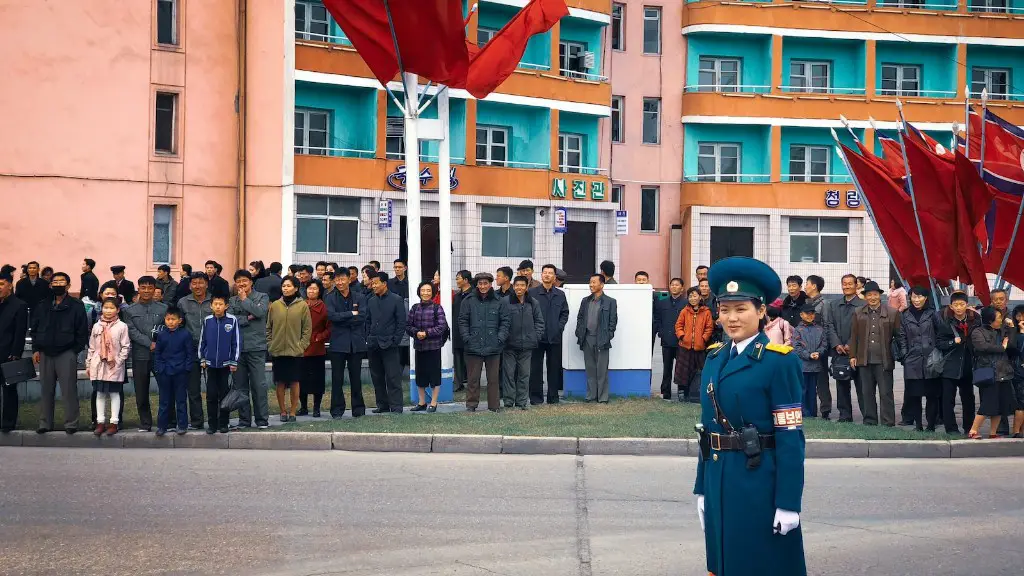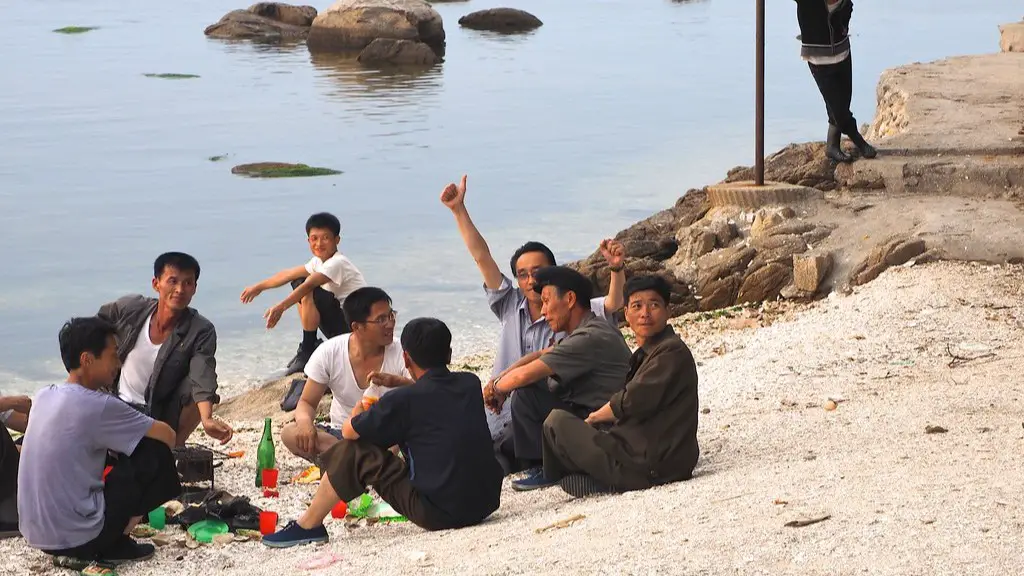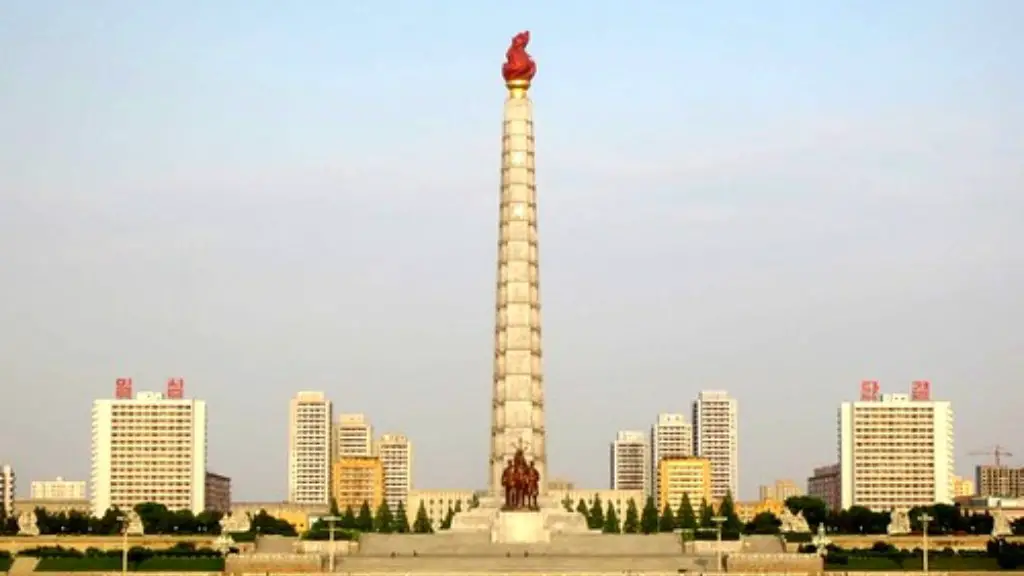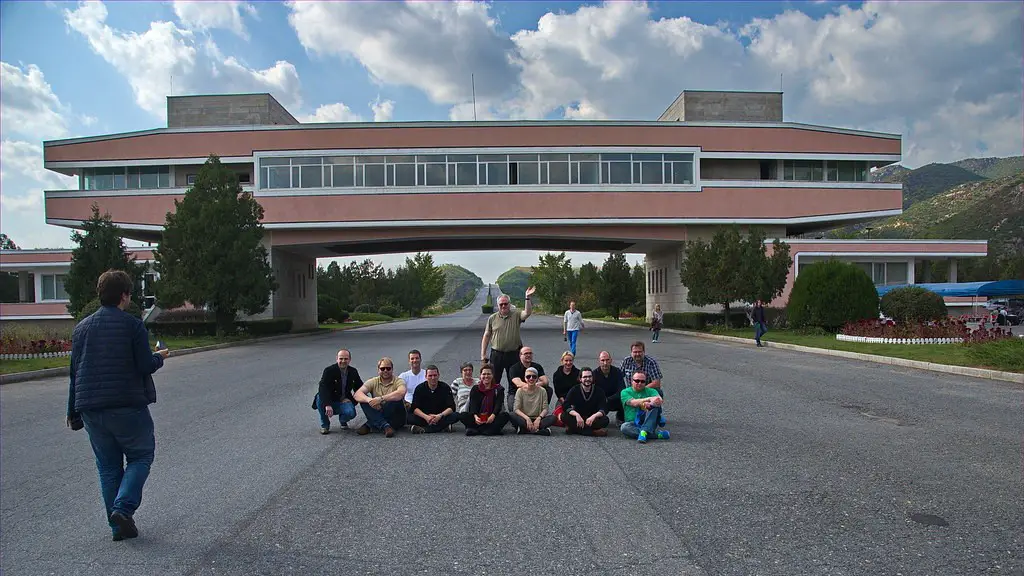When North Korea comes into conversation, the fear of nuclear weapons and ballistic missiles dominates. North Korea has a long history of violating international laws and long range intercontinental missile capabilities. The nuclear threat posed by them creates considerable uncertainty around the world. The increasing tension between the US and North Korea have caused a sense of apprehension as to what the future will hold. Everybody wants to know, how worried should we be about North Korea?
Recent sanctions levied against North Korea by the United Nations have had an effect, even if they have not created a lasting peace. The US is pushing for a complete denuclearization of the Korean peninsula. North Korea claims to have achieved nuclear capability and the US is pushing back with economic and diplomatic measures. There are questions about North Korea’s sincerity in denuclearization. In the past North Korea has pulled back from agreements shortly after making them, only to start the process over again a year or two later.
The situation is compounded when North Korea continues to allow missile tests and threatens the United States and its allies. This is a real possibility and a direct violation of UN Security resolution. After recently completing an intercontinental ballistic missile launch that confirms their capability for a nuclear attack, North Korea went on to threaten the US and its allies, South Korea and Japan.
Therefore, the answer to the question of how worried we should be about North Korea is difficult to provide with certainty. Some argue that North Korea is close to creating a nuclear warhead with the capability of reaching the United States. The US is not relying on this possibility and is also strengthening it’s defensive alliance with Japan and South Korea. This alliance is ready to respond to a military attack with overwhelming conventional force. Academic experts and government officials have also suggested that sanctions and diplomatic pressure remain the best way to curb North Korea’s ambitious nuclear program.
Moreover, North Korea has world class defenses and a small armed force of roughly 1 million personnel. While North Korea’s military does not stand a chance against a joint US and South Korean combined-arms assault, it possesses significant airpower and formidable fortifications. This will make an armed conflict difficult and lengthy, as North Korea has a wide range of explosive traps, tunnels and other earthworks for hiding key assets and defending against a western style assault. This could lead to a prolonged and costly campaign, if the US decided to go to war.
The media also plays a role in this debate. Hyped up articles exaggerate the danger and make it appear as if nuclear war is an imminent possibility. This may have a psychological effect and public opinion towards North Korea as a threat is heavily influenced by the media. People may not be aware of the facts and information, which can lead to exaggeration and an increase in fear. In times of conflict, the media can be an influential political tool.
US Policy
The US policy remains firm in their stance on North Korea, which is diplomacy and economic sanctions. US president Donald Trump recently met with North Korea leader Kim Jong Un and has shown a willingness to work with North Korea towards denuclearization. President Trump is seeking to create a lasting peace, though it is yet to be fully achieved.
The US has been building regional alliances in attempt to protect against North Koreas nuclear capabilities. This includes increasing sanctions and engaging in military drills with South Korea as well as other countries in the region. This shows that US is taking the situation seriously, however, all strategies are not without fault. The US will be relying on some level of cooperation from North Korea and have given sanctions in return.
The US is also using diplomatic channels to work with other countries in the region to stop the advancement of North Korea’s nuclear capabilities. This includes talks between Japan, South Korea and China. The US is also looking for additional support from regional allies, such as Russia and North Korea’s closest ally, China.
Effects of Sanctions
While sanctions have not stopped North Korea from developing nuclear weapons, they may have had some effect. Recent reports from North Korea indicate that the country is struggling with a failing economy, which is partly due to international sanctions. As of now, the situation continues to remain uncertain as military and political tensions have been high in the region.
The sanctions have meant that North Korea has been unable to access much needed funds and resources, which could have impacted their development of long range missiles. Although, it is hard to definitively state the impact these measures have in curbing their ambition. It is also important to remember that many of the countries facing the sanctions have been living with them for decades and they may have come up with ways of adapting to them.
It is also difficult to either validate or invalidate the effectiveness of sanctions without seeing the final outcome. Some believe that the sanctions are having a negative effect economically on the North Korean people, resulting in an increased level of political unrest. In addition, these sanctions can also isolate the North Korean people from the outer world and curtail freedom of movement, which are serious concerns.
Insight from experts
Experts from around the world are watching the situation closely in an effort to better understand North Korea and the feasibility of their nuclear ambitions. Some experts believe that North Korea’s nuclear capabilities should be taken seriously and that the country is a real threat. Others believe that the situation is manageable with diplomatic and economic measures, as long as US and its allies continue to make progress in negotiations.
The consensus appears to be that North Korea is unlikely to launch any kind of nuclear strike unless they feel that their survival is at risk. In the context of the situation, North Korea may feel that their security is at risk, if the US continues to impose economic and diplomatic measures against North Korea.
Overall, it is still too soon to know the extent of how serious the threat from North Korea truly is. The US and its allies are doing what they can to reduce the threat, while using diplomacy and economic measures as deterrents. Nevertheless, the majority of experts agree that North Korea’s nuclear ambitions should be taken seriously and that it is necessary to take cautionary measures.
Response from governments
Governments around the world have been taking the situation seriously and have been monitoring North Korea’s activities. The US, South Korea and Japan have been actively engaging in communication with the North Korean government and have been seeking to hold talks concerning denuclearisation. Multiple nations have also committed to providing aid and assistance to North Korea, in an effort to alleviate the threat posed by its nuclear program.
In addition, nations such as the US and China have been involved in conducting international negotiations with North Korea’s leadership. China has been a prominent supporter for North Korea and is also working to deescalate the tensions in the region, as well as help to resolve the threat posed by the nuclear program.
Russia has also responded and is offering support for denuclearization. Over the past decade, Russia and North Korea have developed an economic and political relationship, which has led to Russia providing assistance to North Korea. Although, it remains to be seen as to what extent Russia is willing to go, in order to resolve the nuclear crisis.
Role of public opinion
Public opinion plays a major role in this situation, because it reflects the concerns of people around the world. The media plays a crucial part in influencing public opinion and this is why it is important to have accurate and balanced coverage of the situation, without exaggerating the risks posed by North Korea.
These risks should not be ignored and it is important for people to understand that North Korea does pose a real nuclear threat to the region. People should be aware of the facts and information, which should empower them to express their opinion intelligently. Understanding the complexities of the situation will also lessen any irrational fear.
It is essential to continue to increase public awareness and understanding of North Korea’s nuclear weapons capability, as well as continuing to monitor the situation and hold open discussions. People should remain informed on the latest news and developments, in order to make an informed judgement on the situation.
International aid
International aid has been a major factor in attempting to coax North Korea away from its nuclear ambitions. Countries such human rights organisations, the United Kingdom, Germany, Japan and the United States, have been engaging in providing aid to the North Korean people. This includes, providing support in education, infrastructure and other essential resources.
It is hoped that this aid will benefit the North Korean people, in an effort to encourage a peaceful resolution and negate the need for North Korea to pursue nuclear weapons. Foreign aid should also be directed towards North Korea’s trading partners, such as China and Russia, to ensure that they are on board with international efforts to encourage denuclearisation.
Finally, there must be increased international cooperation and dialogue, in order to increase understanding of North Korea and its nuclear ambitions. Ultimately, this is the key to resolving the situation and will depend largely on the willingness of all involved parties to come to an agreement and take decisive action.





